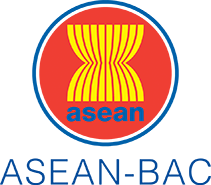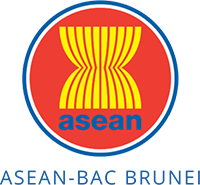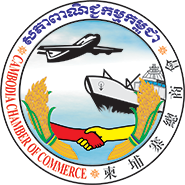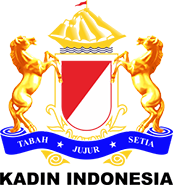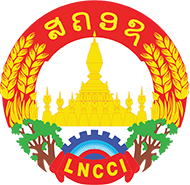
Volume 36 – July 2024
Greetings from DISG Secretariat
Dear Readers,
Welcome back to volume 36 of DISG monthly newsletter. We hope everyone has been doing well over the past quarter and is excited to embrace the opportunities that the second half of the year brings.
The past few months have been dynamic, featuring significant events across ASEAN and Japan. We will highlight the successful promotion of startup innovation between ASEAN and Japan at the launch event of “Singapore-Japan Fast Track Pitch Event 2024” in April and the “Japan-ASEAN Startup Fair 2024” in June. Additionally, we’ll explore the engagement of youth in high-level dialogues during the “ASEAN Youth Economic Forum 2024” in April. These initiatives have laid a strong foundation for sustainable growth and prosperity in the region.
In this context, we’ll also outline Prime Minister Kishida's speeches at the “Future of Asia” Forum in May and the “Asia Business Summit” in July, which emphasize the importance of regional cooperation and sustainable economic growth. His remarks highlight the need for innovative partnerships and collaborative efforts to tackle pressing challenges in the Asia-Pacific, paving the way for a resilient and interconnected future.
We’ll also feature Minister Saito's visit to Singapore in June, where he attended the “IPEF meeting” and launched the “Japan-Singapore Co-Creation Forum”. This meeting reinforced the commitment to strengthening the ties and fostering collaborative innovation between the partner countries. The forum aims to enhance partnerships in key sectors such as technology, sustainability, and economic development, paving the way for exciting new initiatives that will benefit both countries and the broader region.
This volume will delve deeper into the 6 topics mentioned above, providing detailed coverage as follows;
- • Launch event of “Singapore-Japan Fast Track Pitch Event 2024" in April
- • “Japan-ASEAN Startup Fair 2024: Connecting networks for sustainable growth” in June
- • “ASEAN Youth Economic Forum 2024” in April
- • Speech by Prime Minister Kishida at the “Future of Asia” Forum in May
- • Speech by Prime Minister Kishida “Asia Business Summit” in July
- • Visit to Singapore by Minister Saito in June, attending “IPEF meeting” and launch of “Japan-Singapore Co-Creation Forum”
Best regards,
ISHIKAWA Hiroshi
Chair of DISG Task Force
Executive Director, JETRO Singapore
Special Advisor to Minister, Ministry of Economy, Trade and Industry, Japan
Launch event of “Singapore-Japan Fast Track Pitch Event 2024" in April
On April 26, 2024, a launch event of “Singapore-Japan Fast Track Pitch Event 2024” was held in Singapore by Ministry of Economy, Trade and Industry (METI) and the Japan External Organization (JETRO), together with Singapore government agencies, for each Challenge Owner to elaborate on their challenges. A wide range of small and medium-sized enterprises (SMEs) are invited to submit proposals.
■ Background of “Fast Track Pitch Event”
Although the initiative has been disseminated constantly throughout last year in DISG newsletters, let’s revisit the background of the event one more time. Last year, in commemoration of 50th anniversary of ASEAN-Japan Friendship Cooperation, the METI and JETRO, with ASEAN’s government agencies, set up a scheme called “ASEAN-Japan Co-Creation Fast Track Initiative”. The aim of the Initiative was to promote collaboration between Japan and ASEAN for open innovations and co-creations.
As part of the Initiative, the “Fast-Track Pitch event”, in which leading companies from Japan and ASEAN sought for solutions for their challenges from all over the world, was launched in 2023. Last year, the events took place in four cities, in Singapore, Bangkok, Jakarta, and Hanoi, gathering more than 1,400 participants from a wide range of organizations including startups, large corporations, investors, and supporting organizations.
The outcome led to various collaborative works and was highly evaluated as a tangible collaboration between two countries. Both sides reaffirmed to strengthen the collaboration efforts to generate innovation.
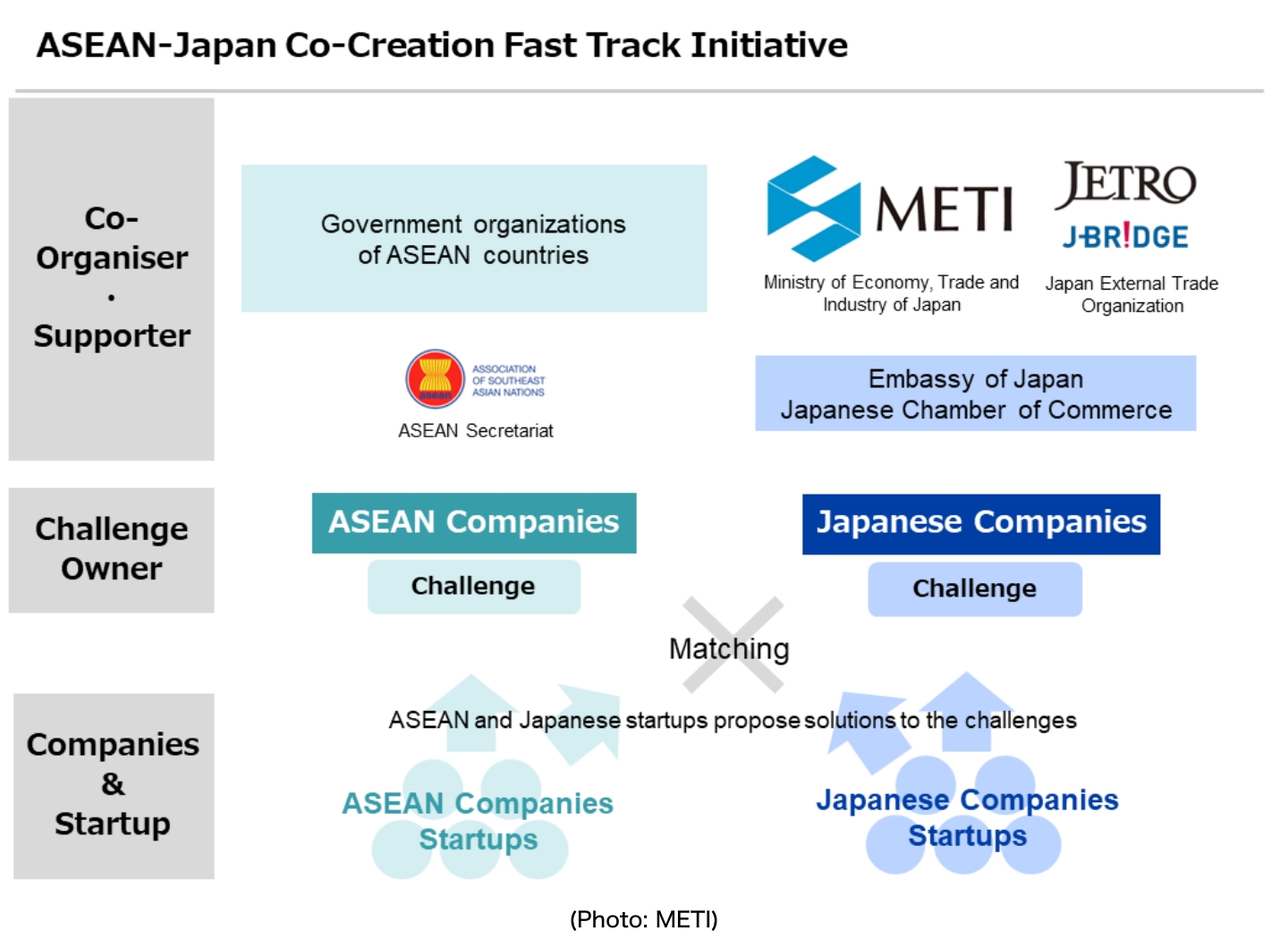
■ “Singapore-Japan Fast Track Pitch Event 2024”
Following the conclusion of the Dialogue, METI announced that "Japan-Singapore Fast Track Pitch" will be held to kick off series of Fast Track events this year. Details of the challenge have been announced on JETRO's special website below. Collaborating with the SME Support Japan, SMEs are also invited to submit proposals this year.
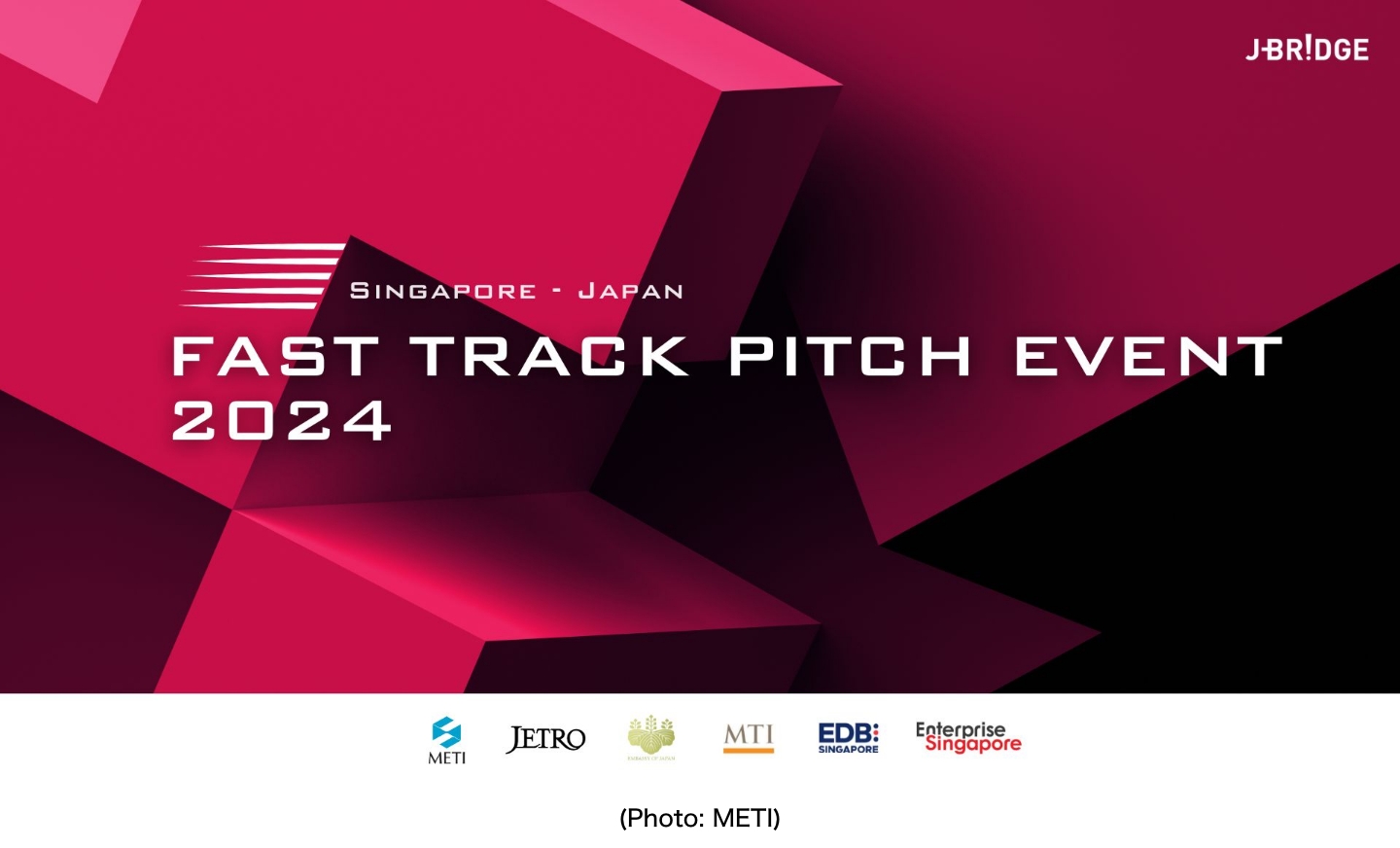
“Singapore-Japan Fast Track Pitch Event 2024” website: LINK
The event is co-organized by Ministry of Economy, Trade and Industry (METI), Japan External Trade Organization (JETRO), Embassy of Japan in Singapore, Singapore Ministry of Trade and Industry, Singapore Enterprises Board, and Singapore Economic Development Board, with cooperation of ASEAN Secretariat and related organizations.
On April 26, 2024, a launch event was held for Challenge Owners to elaborate on their challenges, along with the networking sessions with Challenge Owners, startups, investors, and Singapore government officials participating. The final pitch event will be on Jul 19, 2024.
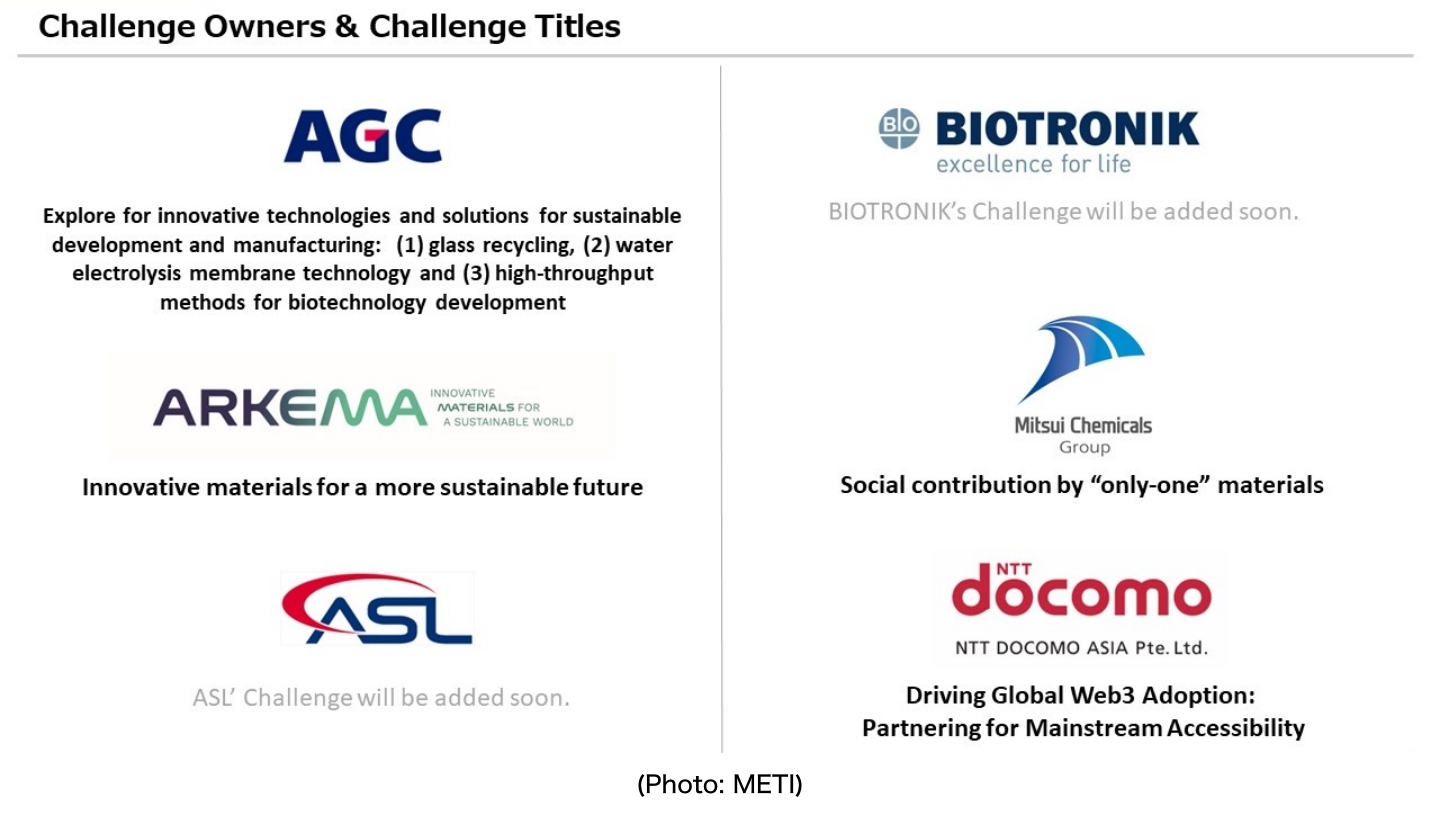
For details of each company's challenge, please refer the JETRO Special website, click here.
- “Singapore-Japan Fast Track Pitch Event 2024" to be Held in Singapore (English) (LINK)
“Japan-ASEAN Startup Fair 2024: Connecting networks for sustainable growth” in June
On June 19, 2024, the "Japan-ASEAN Startup Business Matching Fair 2024", the largest Startup Business Matching event in ASEAN, was held in Thailand, in collaboration with Bank of Ayudhya (Krungsri) and the AEM-METI Economic and Industrial Cooperation Committee (AMEICC) under the Ministry of Economy, Trade, and Industry (METI) of Japan. The event was co-organized by government entities from four countries, including Japan, Cambodia, Vietnam, and Thailand, in partnership with MUFG Group Partner Banks in ASEAN.
This event created business matching opportunities for over 60 startups from 6 countries with more than 180 leading international investor companies. This initiative enhanced the startup ecosystem and fostered network connections, driving growth in the ASEAN region and Japan under the main theme of promoting Digital Economy, ESG, EV, Healthcare (Aging Society), and Factory Automation.
■ Opening Ceremony
On this occasion, H.E. Mr. Otaka Masato, Ambassador of Japan to Thailand, presided over the ceremony and delivered the opening speech. He highlighted the promotion of the startup ecosystem as a key mission of the Japanese government under the Five-Year Joint Action Plan for the Japan-Thailand Strategic Economic Partnership. Key areas of cooperation include Japan's “Green Transformation (GX)” strategy and Thailand's “BCG Economy.” The Japanese government expressed its support for this significant regional event, which reflects collaboration among digital promotion agencies and public and private sectors from Japan, Thailand, and ASEAN countries, aiming to foster startup growth and digital transformation in the region.
Following this, distinguished guests from ASEAN and Japan organizations also shared their welcoming remarks, namely Dr. Nuttapon Nimmanphatcharin, President & CEO of Digital Economy Promotion Agency (depa), Mr. Hirofumi Yatabe, Senior Managing Director of Tokyo SME Support Center Japan, Mr. Kenji Yabuta, President of Mitsubishi Research Institute, Mr. Vu Quoc Huy, Director of National Innovation Center, Ministry of Planning and Investment of Vietnam (VDO), Dr. TAING Nguonly, Executive Director of Techo Startup Center, Ministry of Economy and Finance, The Royal Government of Cambodia (VDO), and Mr. Kenichi Yamato, President and CEO of Krungsri Group.
■ Startup Pitching
Out of 60 Startups that participated the event, 29 Startups were carefully selected to conduct pitching on stage. Each startup pitch under 3 minutes in various industries, including Factory Automation, Agri Tech, Food Tech, Health Tech, Fin Tech, Logistic Tech, EdTech, Marketing Tech, Deep Tech, and IoT/ Big Data, which received high attentions from the event participants.
■ Seminars and Sharing Sessions
In addition to last year event, this year, the Seminars and Sharing Sessions were additionally arranged. There were two seminars by Mitsubishi UFJ Research and Consulting and Mitsubishi Research Institute, on the topics of on ASEAN-Japan collaboration strategies to practically address social issues in ASEAN. The event also highlights the role of Japanese startups in advancing technology and industry in Thailand and the Mekong region.
Afterwards, Sharing Sessions by 3 country leading e-commerce platforms were arranged, with the purpose to encourage sales expansion and flow between Japan-ASEAN where the attendants were allowed to hear about the market trend and situation of each country, while also able to understand how to penetrate the market using such e-commerce platform.
■ Booth Exhibition and Business Matching
In addition to startup pitching sessions to investors, the event features business matching activities and exhibitions by over 60 entrepreneurs and startups. There were over 400 one-on-one Business Matchings arranged at the event, some are between Startups and Venture Capitals that focus on Investment opportunities and some are between Startups and Corporates that did not look only for Investment opportunities but also Business Synergies with its businesses.
The event concluded with a business networking event with remarks from Mr. Nobutake Suzuki, President & CEO of MUFG Innovation Partners, and successfully established the connectivity between startups and large corporates of ASEAN and Japan for sustainable economic development in the future.
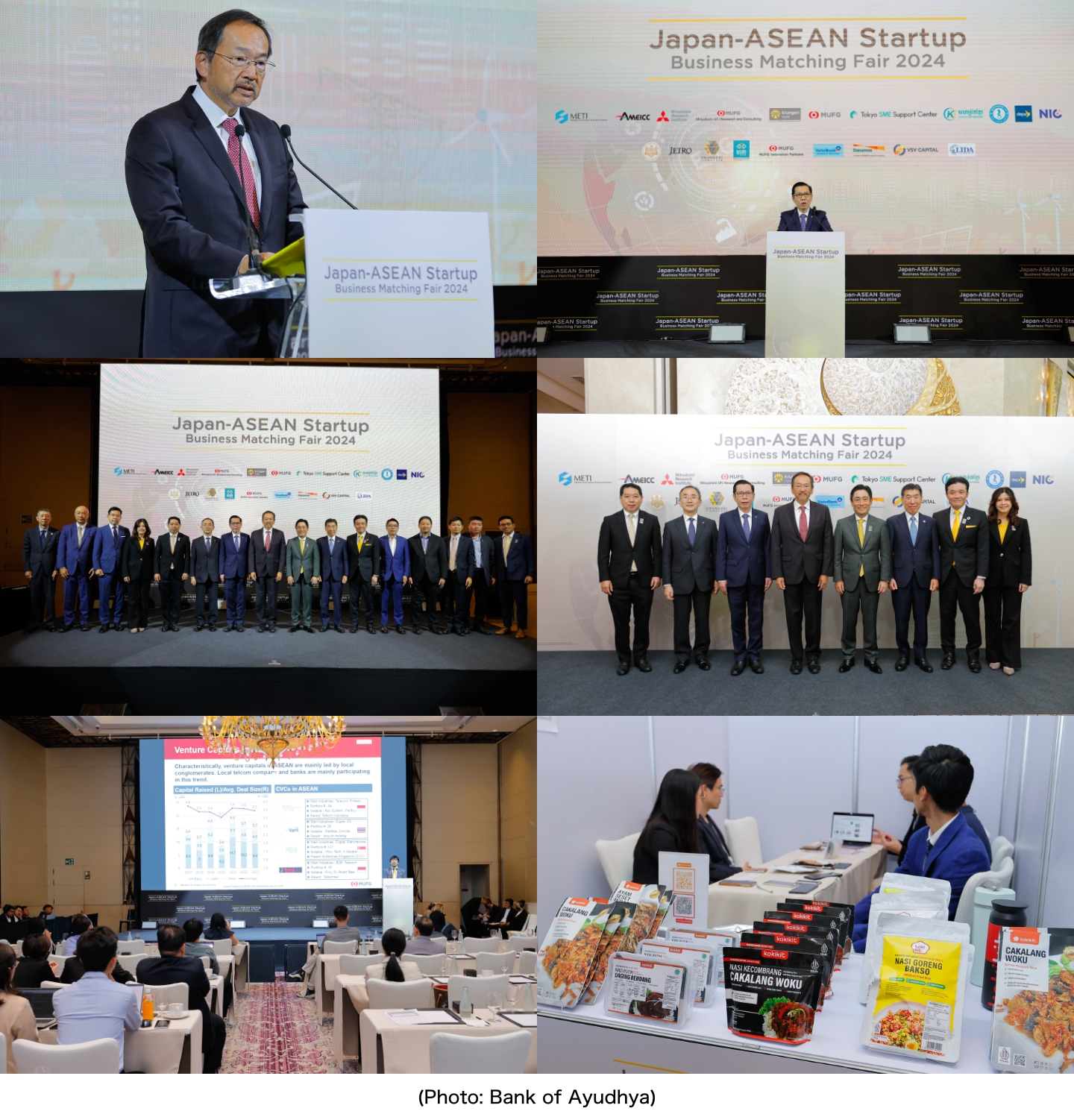
- Krungsri joins forces with partners to host Japan-ASEAN Startup Business Matching Fair 2024, connecting startup networks for regional sustainable growth (English) (LINK)
“ASEAN Youth Economic Forum 2024” in April
On April 4-5, 2024, “ASEAN Youth Economic Forum 2024” was held in Laos DPR, co-organized by ASEAN Youth Organization and the Mekong Institute (MI), and supported by stakeholders across ASEAN, Japan, the AMEICC (AEM – METI Economic and Industrial Cooperation Committee), the Ministry of Economy, Trade, and Industry of Japan (METI), and the ASEAN Secretariat.
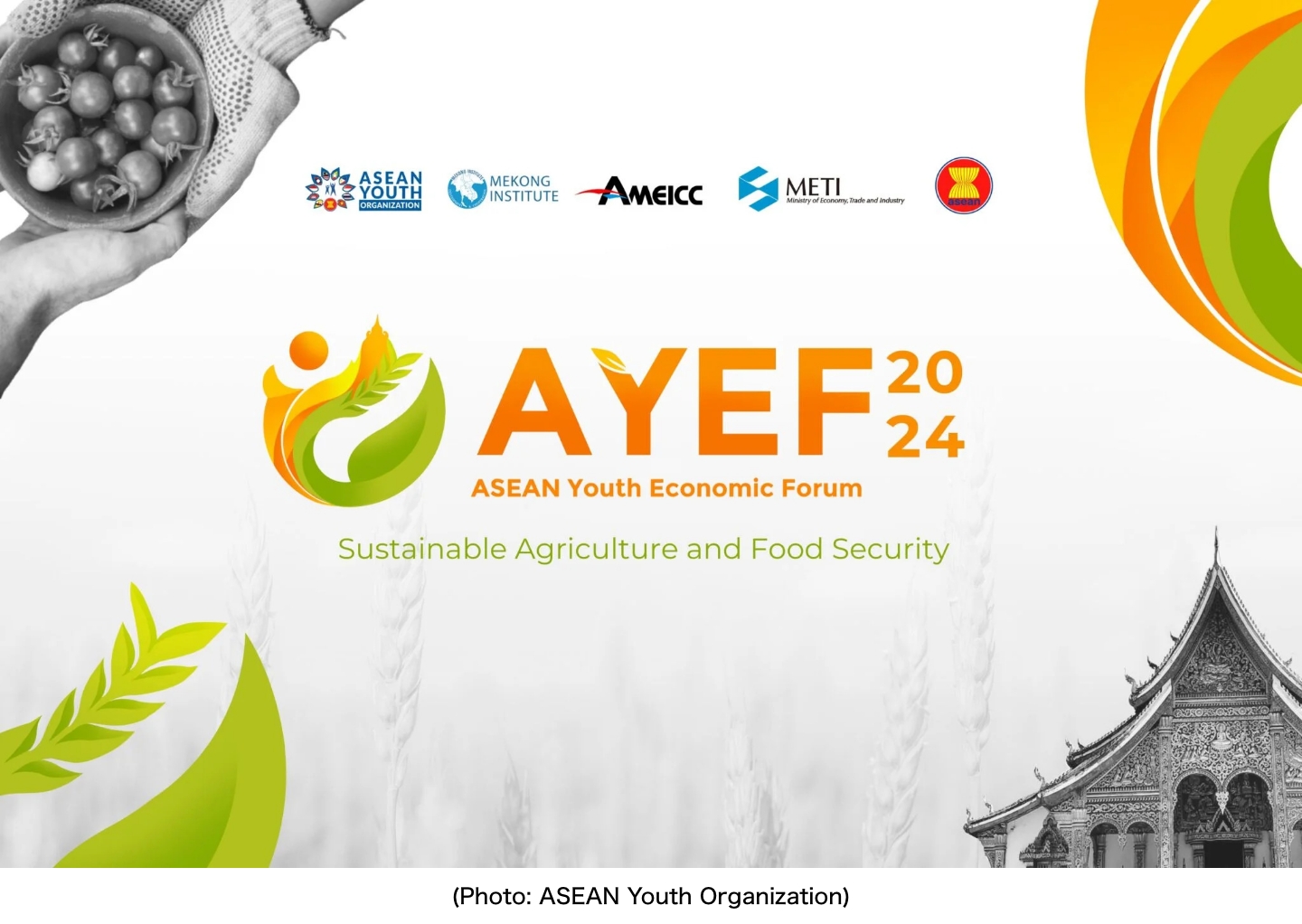
AYEF Website: LINK
■ Introduction and Background of ASEAN Youth Economic Forum
Established on August 8, 1967, the Association of Southeast Asian Nations (ASEAN) aims to foster regional cooperation, peace, and prosperity among its member states. In line with this mission, the “ASEAN Youth Economic Forum (AYEF)” serves as a signature program of the ASEAN Youth Organization, focusing on promoting youth inclusivity in economic development. Held annually in collaboration with various partners, AYEF empowers young people to understand business culture, landscape, sustainability, and expand their networks across ASEAN and beyond. Additionally, the forum encourages youth participation in the policy-making process, presenting recommendations to the “Senior Economic Official Meeting (SEOM)” and supporting the “ASEAN Work Plan on Youth” key priorities Participation and Engagement.
■ “ASEAN Youth Economic Forum 2024”
The ASEAN Youth Economic Forum (AYEF) 2024 aims to enhance collaboration among key players in the agricultural value chain, including governments, private firms, and international organizations. Co-organized by the ASEAN Youth Organization and the Mekong Institute, the forum will address food insecurity and sustainable agriculture while empowering youth involvement in these issues. Aiming to provide a dynamic platform for interactive learning and seeking to foster direct engagement and collaboration among young leaders from ASEAN and Japan to strengthen regional ties.
The ASEAN Youth Economic Forum (AYEF) 2024 consists of 2 days, focusing Day 1 on a full day Public Forum & workshops, and Day 2 on Talk Show, Focus Group Discussion, & Site Visit at co-farm. The event welcomed 30 delegates from ASEAN and Japan countries and was participated by a total of 510 participants with different backgrounds.
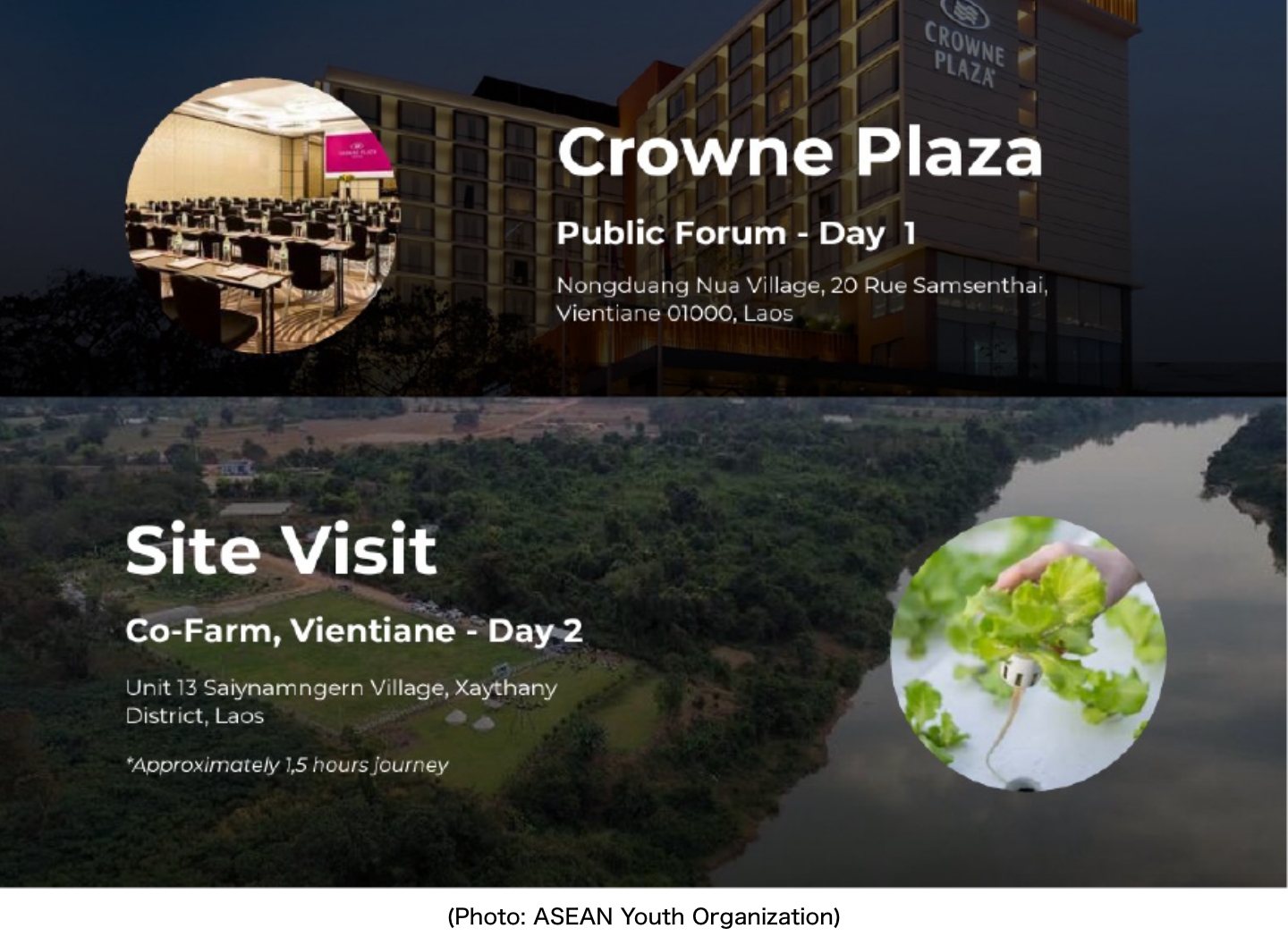
○ Day 1: Public Forum
On April 4, 2024, a full day public forum was held in Crowne Plaza, Vientiane, Lao PDR, attended by 177 on-site and over 300 online participants of professional and experts, government institutions, and high-level speakers from many nationalities.
The opening remarks were given by H.E. Kenichi Kobayashi, Ambassador Extraordinary and Plenipotentiary of Japan to the Lao DPR, followed by keynote speech by Mr. Bouachanh Sihavong, Deputy Secretary of Youth Union of Ministry of Agriculture and Forestry of Lao PDR, Mr. Yukio Kamiya, Director of ASEAN Bilateral Relations, Trade Policy Bureau, Ministry of Economy, Trade and Industry (METI) of Japan, and Dr. Roger Chao Jr., Assistant Director, Youth, Education, and Sport Division of ASEAN Secretariat. Mr. Ryosuke Fujioka, Chief Representative of AEM - METI Economic and Industrial Cooperation Committee, and Mr. Senjaya Mulia, Founder of ASEAN Youth Organization also gave welcoming remarks to all the participants.
There were 5 sessions, addressing various key topics from high-level speakers from ASEAN and Japan, including;
-
1. Session 1) Understanding Food Security and building resilience: A perspective on grassroots, policy and collaboration. The session explored the different elements of food security and touched upon the policy outlook related to the core issues of food security.
-
2. Session 2) Diagnosing the Roots: Causes and Effects of Food Insecurity, focusing 1) The Barriers & Challenges on Regenerative Agriculture for Food Sustainability, 2) Unveiling the Root Causes: Understanding the Convergence of Food Security and Sustainable Agriculture, and 3) Unraveling the Root Causes of Food Insecurity in Agricultural Trade and the Four Pillars of Food Security.
-
3. Session 3) Nurturing Solutions: Agripreneurship, Technology and Innovation, focusing 1) Case studies of agritech in Laos, 2) Building Consumer Awareness and Promoting Sustainable Food Choices, and 3) Exploring the Intersection of Climate Financing and Sustainable Agriculture and Resilience Value Chains.
-
4. Session 4) "ASEAN-Japan Initiatives and Collaborative Pathways", focusing 1) Role of Civil Societies and Non-Profits, and Grassroot Initiatives (Opportunities, Concerns, Ways Forward), 2) ASEAN Practices on Sustainable Agriculture and Its Relation to Public Private-Producer Partnership, 3) Access to Financing for Local Farmers, and 4) WFP Japan’s leading initiative success and their applicability to Mekong Countries.
-
5. Session 5) Youth-Led Organizations: Showcasing Initiatives & Best Practices for Food Security and Sustainable Agriculture, focusing 1) Practice of Sustainable Agriculture 2) Environment and Resource Efficiency, 3) Youth Engagement Policy Plan to Address Challenges in Agriculture Sector, and 4) Empowering ASEAN Farmers via Technology and Carbon Credit.
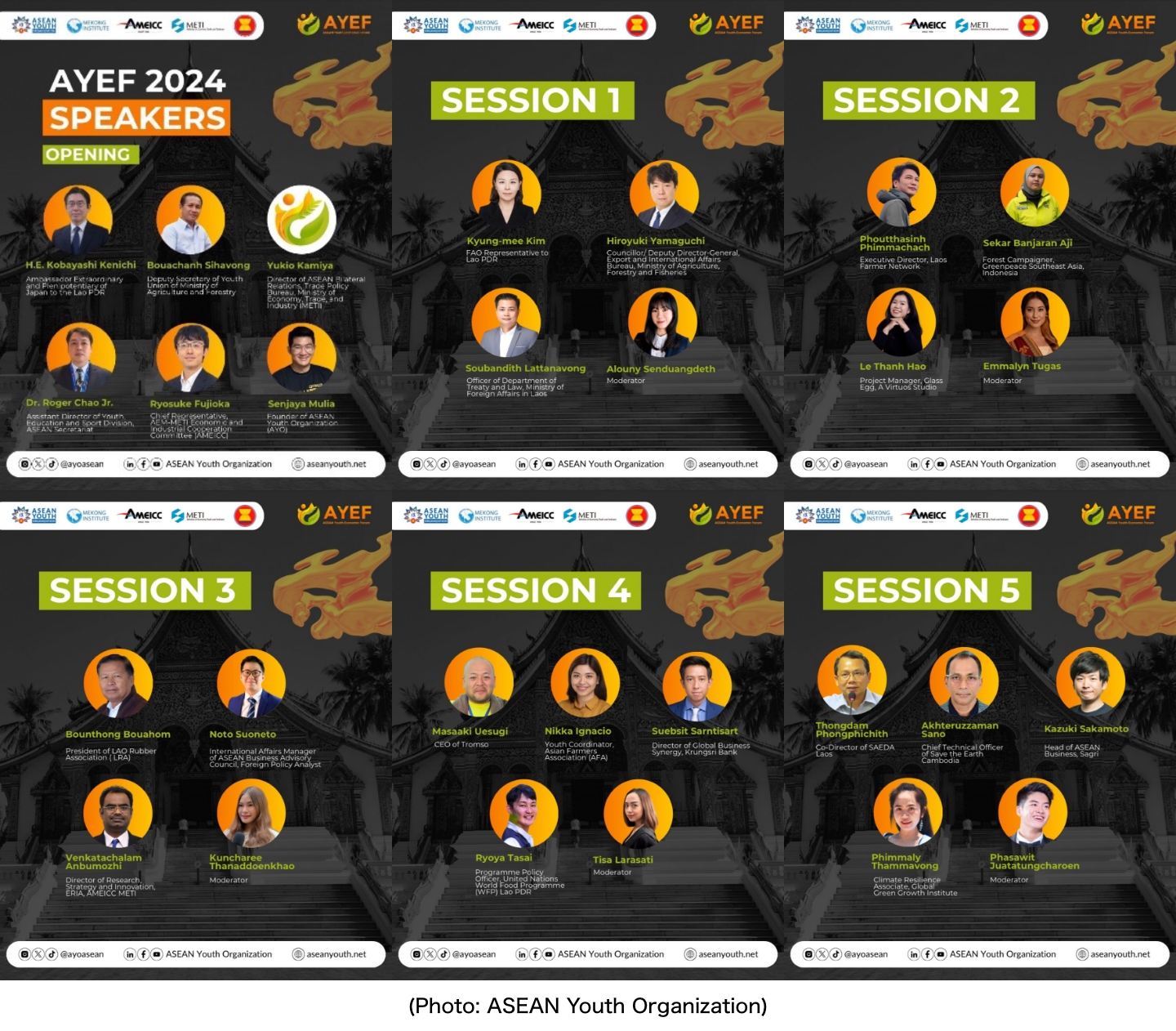
○ Day 2: Focus Group Discussion and Site Visit
On April 5, 2024, the morning activities include a 1) Talk Show Session with focus on Agriculture with its relations to thematic areas of Youth, Gender, Climate, Tech, and Indigenous People, 2) Focus Group Discussions on Agriculture, namely “Gender & Youth”, “Climate Change and Technology”, and “Indigenous People in ASEAN”, and 3) Presentation/pitching Session. In the afternoon, the delegates and experts embarked on a Site Visit in Ecotourism Area, focusing on Co-Farm and Training about Sustainable Farming in Co-Farm.
During the closing ceremony of the ASEAN Youth Economic Forum (AYEF) 2024, participants reflected on insightful discussions and collaborations. Distinguished guests emphasized the importance of youth engagement in addressing economic and agricultural challenges in the region. Awards were presented for "Best Delegate," "Best Group Idea," and "Best Costume," recognizing outstanding contributions. The ceremony concluded with gratitude to all participants, organizers, and partners for their commitment to advancing sustainable socioeconomic development and fostering collaboration within the ASEAN community.
In conclusion, the ASEAN Youth Economic Forum (AYEF) 2024 has undoubtedly made a significant impact on both the ASEAN region and its youth population. Throughout the event, passionate and driven young leaders from diverse backgrounds came together to explore innovative solutions to pressing economic and agricultural challenges facing the region.
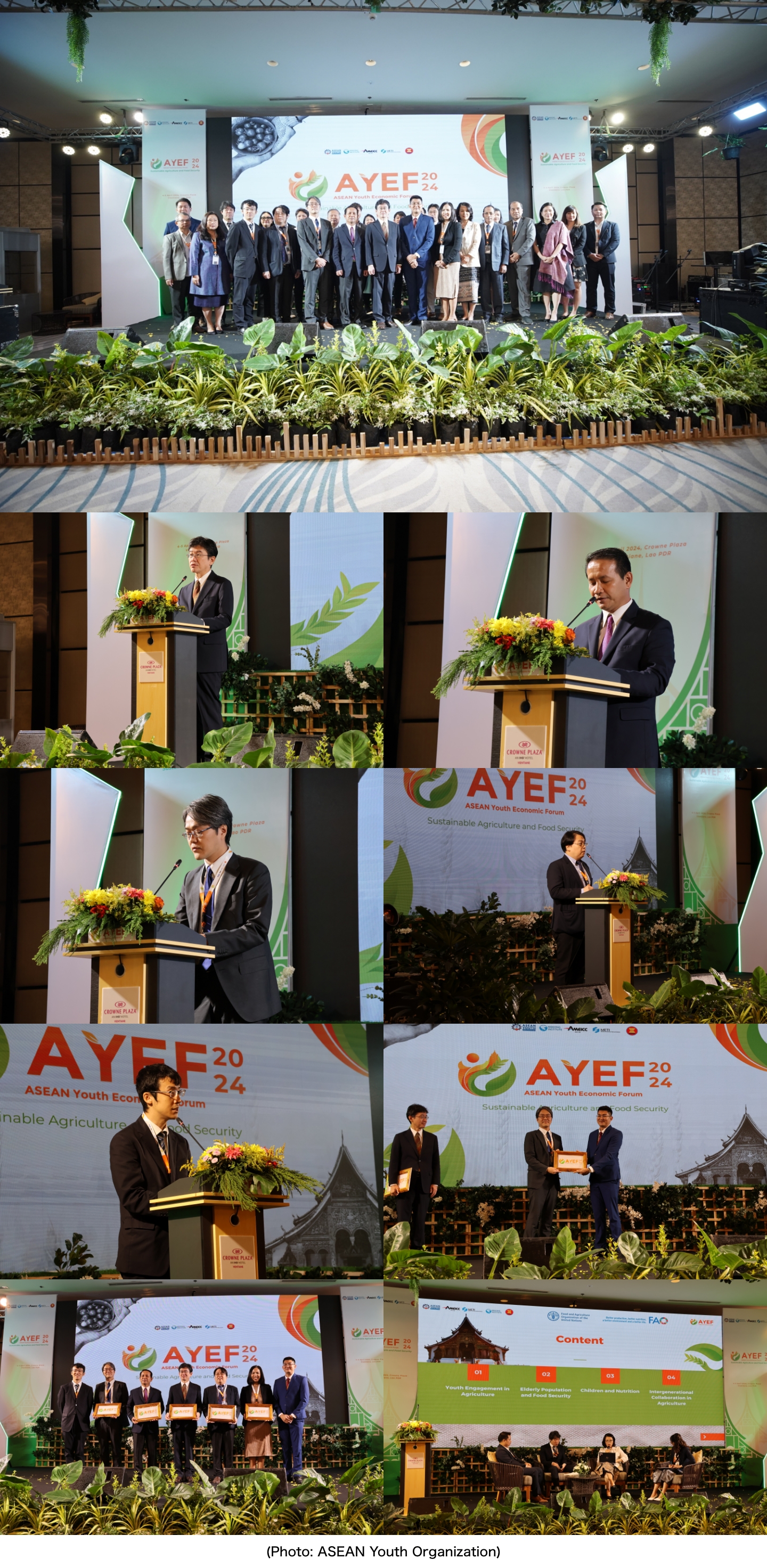
- ASEAN Youth Economic Forum 2024 (English) (LINK)
Speech by Prime Minister Kishida at the “Future of Asia” Forum in May
On May 23, 2024, Prime Minister Kishida gave a speech at the “Future of Asia” Forum. He extended his appreciation and honor to welcome the esteemed leaders of Asian countries to Japan. The key highlights of his speech are as follows;
■ Introduction
The theme for this year’s Future of Asia forum, “Asian Leadership in an Uncertain World,” is timely given the current global challenges, including the Russia-Ukraine conflict, tensions in the Middle East, and humanitarian crises. Asia is emerging as a crucial growth center for the global economy, influencing the world's future.
Japan's role is to actively promote human dignity and maintain a free and open international order based on the rule of law while fostering cooperation with Global South countries. The administration's diplomatic strategy focuses on three main areas: (1) promoting regional cooperation, (2) addressing new economic and social challenges through our cooperation, and (3) developing collaboration beyond the region.
■ Advancing a new plan for a “Free and Open Indo-Pacific (FOIP)”
Japan announced last March to enhance cooperation in the “key areas”, Southeast Asia, South Asia, and Pacific Islands, aiming for regional growth.
-
1) Southeast Asia
-
• Trusted Partners: Japan and Southeast Asian countries have long enjoyed a relationship of mutual trust, characterized by “heart-to-heart” connections. In public opinion survey, Japan is recognized as the most trusted partner of ASEAN for six consecutive years, emphasizing strong mutual relationships. Japan will continue to strengthen these relations for future generations.
-
• Vision of “Co-creation”: Launched during the Commemorative Summit for the 50th Year of ASEAN-Japan Friendship and Cooperation, focusing on collaborative efforts to tackle shared challenges and shape future economies. In addition to strengthening connectivity, such as supply chain resilience and green transformation, member countries will formulate flagship projects in future-oriented sectors such as next-generation automobiles and digital technologies.
-
• Japan-ASEAN Comprehensive Connectivity Initiatives: Promoting electricity connectivity, human and knowledge connectivity, as well as transport infrastructure development through projects like railway financing in Vietnam and the Philippines, the start of the “Co-creation for Common Agenda Initiative” in the digital sector with Cambodia, and patrol vessels for Indonesia.
-
• Human Resources Network: Japan is building a "human resources network" to foster mutual trust by inviting young business leaders from ASEAN for discussions. This year, Japan will continue these efforts to strengthen ties and explore the future of Japan and ASEAN.
-
-
2) South Asia
-
• Industrial Value Chain Development: Aims to connect the Bay of Bengal and North Eastern Region of India to develop an Industrial Value Chain, enhancing hard and soft connectivity and promoting private investment in collaboration with Bangladesh and India.
-
-
3) Pacific Islands countries
-
• Strengthening Ties: Essential for addressing climate risks and isolation. Japan will support initiatives aligned with the "2050 Strategy" and the upcoming the 10th Pacific Islands Leaders Meeting (PALM 10) that Japan will host in Tokyo in July of this year.
-
■ Efforts to address challenges in new areas
The international community is at a historic turning point, facing critical challenges that impact daily life, including climate change, infectious diseases, and advancements in technology like AI. In Asia, there are emerging social issues, such as declining birthrates and rapidly aging populations in Japan, South Korea, and China. Overcoming these challenges and demonstrating resilience will require innovative thinking and collaborative efforts.
-
1) Asia Zero Emission Community (AZEC)
-
• Japan is promoting the "Asia Zero Emission Community (AZEC)" to advance the "Green Transformation, GX" initiative, aiming for net zero emissions tailored to each country's needs. Following the first Leaders Meeting in Tokyo, a second Ministerial Meeting will be held in Jakarta to enhance collaboration on technology, finance, and human resources essential for decarbonization. Additionally, the Asia Zero Emission Center will be established to develop CO2 reduction guidelines and promote projects such as carbon-neutral industrial parks, hydrogen production, and ammonia single-firing.
-
-
2) Next generation automobiles
-
• Japan aims to strengthen its automotive partnership with ASEAN, which is crucial for local economies and employment. In response to the industry's rapid changes, Japan will collaborate with ERIA to create the "Automotive Strategy for the Next 10 Years to 2035," ensuring ASEAN's central position in the world’s next-generation automotive industry. This strategy will focus on establishing a production and export hub for a diverse range of automobiles, including hybrids and EVs, while aligning specific initiatives with each ASEAN country.
-
-
3) Digital sphere
-
• Japan aims to foster a safe and secure digital environment in Southeast Asia, focusing on key areas encompassing cyber security, 5G/Open RAN, submarine cables, data centers, and the semiconductor industry. Through the "Hiroshima AI Process," Japan is promoting international collaboration on trustworthy AI, engaging 49 countries, including Asian countries such as India, Laos, Singapore, and Thailand. The initiative emphasizes “data sharing and utilization” through the "Ouranos Ecosystem," enhancing CO2 emissions tracking across industries. Japan also plans to train 100,000 hyper-skilled digital professionals in partnership with ASEAN over the next five years, with ERIA serving as a hub to connect industry, government, and academia, and will collaborate closely with engineering universities in ASEAN countries.
-
- Speech by Prime Minister KISHIDA Fumio at the “Future of Asia” Forum (English) (LINK)
Speech by Prime Minister Kishida “Asia Business Summit” in July
On July 5, 2024, Prime Minister Kishida attended the 13th Asia Business Summit held in Tokyo, and gave a speech. The key highlights of his speech are as follows;
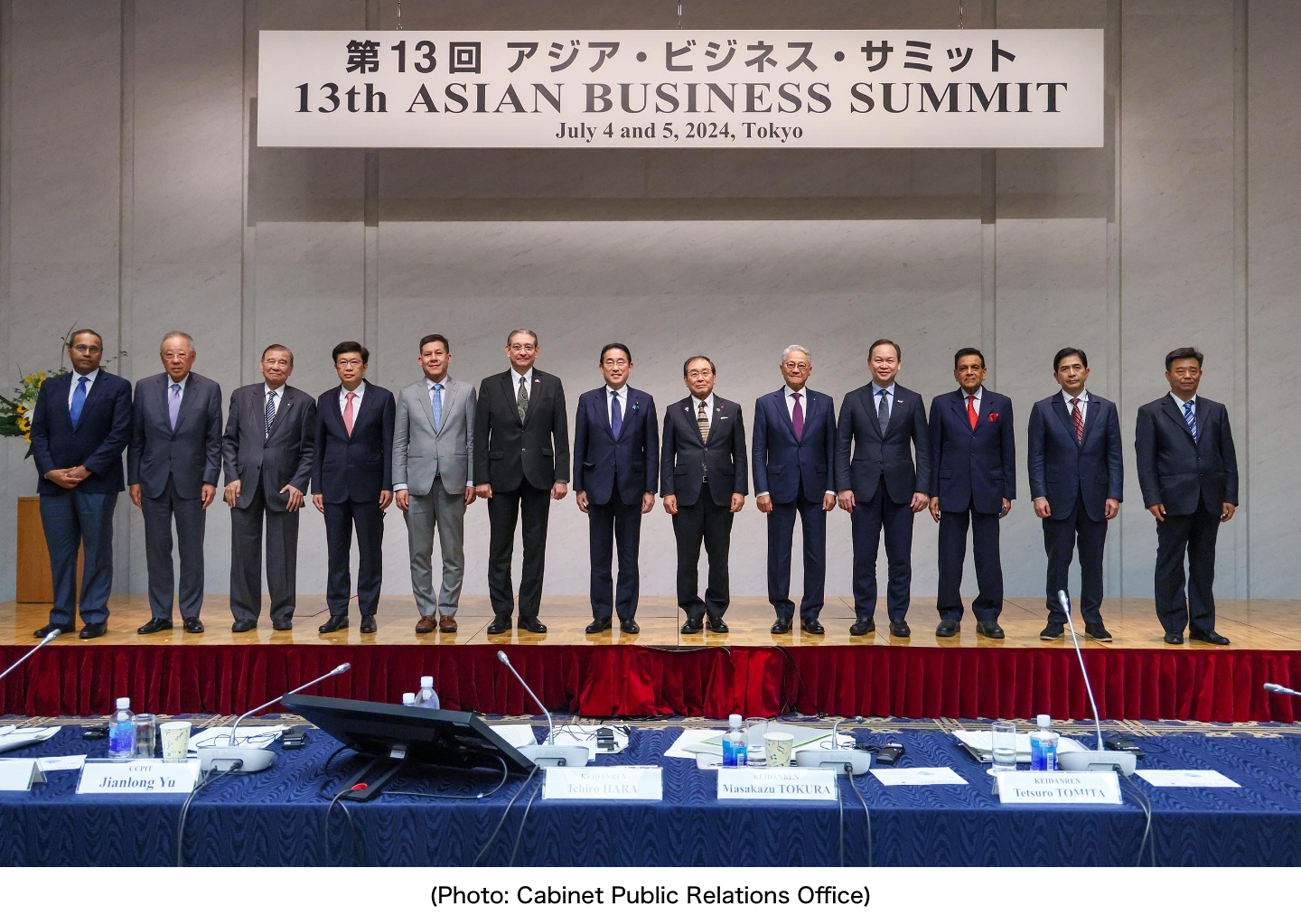
■ Introduction
Prime Minister Kishida Fumio congratulated attendees at the Asia Business Summit, emphasizing its significance as the 13th event since its inception in 2010 and the first held in Tokyo since 2015. Following the COVID-19 pandemic, Japan is proud to welcome participants back. Amid global challenges, including Russia's invasion of Ukraine and rising tensions in the Middle East, Japan aims to prevent division in Asia and promote regional peace, prosperity, and cooperation. The Prime Minister outlined Japan's commitment to green transformation (GX) and digital transformation (DX) as key strategies moving forward.
■ Green Transformation (GX)
Japan aims to lead the decarbonization of Asia by creating a significant decarbonization market through the Green Transformation (GX) initiative. With a commitment to achieving carbon neutrality by 2050, Japan plans to invest 20 trillion yen over ten years, supporting a total of 150 trillion yen in public and private investments. This initiative is crucial as Asian nations, particularly ASEAN members, set ambitious decarbonization targets. Japan emphasizes the importance of diverse pathways to decarbonization, reflecting the unique energy structures of different countries. The Asia Zero Emission Community (AZEC) has been launched to facilitate collaboration and share Japan's decarbonization experiences across the region.
In January 2022, Prime Minister Kishida proposed the Asia Zero Emission Community (AZEC) to drive decarbonization efforts in Asia, with the first summit held in Tokyo in December. Positive feedback from Asian leaders highlighted expectations for Japan's technologies and insights. The second summit is planned for Laos this fall, aiming for concrete actions over the next decade. Prime Minister Kishida proposed three initiatives regarding the future of AZEC: (1) launching sectoral cooperation initiatives for zero emissions in the electricity, transportation, and industrial sectors, (2) establishing an Asia Zero Emission Center at the ERIA (Economic Research Institute for ASEAN and East Asia) in Jakarta to support these initiatives in practical terms, and (3) developing cross-border infrastructure, including rules on Asia-wide decarbonization in the AZEC. Japan seeks to create a significant decarbonization market in Asia, attract global investments, and establish common rules for CO2 emissions and hydrogen cooperation.
■ Digital Transformation (DX)
Japan aims to lead in digital transformation (DX) by pursuing innovation especially in artificial intelligence (AI) alongside Asia. Recognizing AI's role in industrial competitiveness, Japan emphasizes developing large-scale language models (LLMs) rooted in local cultures, despite challenges with the Japanese language. Japanese startups are actively creating LLMs for various Asian languages, with support from the government. Japan plans to foster 100,000 skilled digital professionals over the next five years and promote regional collaboration in AI. Additionally, the Hiroshima AI Process was launched to address the risks associated with AI, engaging 53 participants in developing governance frameworks and countermeasures against technical risks to realize safe, secure, and trustworthy AI. Overall, Japan is committed to advancing peace, prosperity, and cooperation in Asia through green and digital transformations.
■ Closing remarks
In April 2025, the Osaka Kansai Expo will commence under the theme “Designing Future Society for Our Lives,” showcasing the fusion of Japanese and Asian cultures. Prime Minister Kishida emphasized that Asia is a global growth center, contributing nearly 35% of the world’s GDP, and its future is vital for global progress. He encouraged business leaders to leverage this opportunity to foster development across Asia, reaffirming Japan's commitment to being a strong partner in this growth. Thanking attendees, he concluded by renewing his pledge for collaborative advancement.

- Asia Business Summit (English) (LINK)
Visit to Singapore by Minister Saito in June, attending “IPEF meeting” and launch of “Japan-Singapore Co-Creation Forum”
On June 6, 2024, Minister of Economy, Trade and Industry Saito, visited Singapore and attended the Ministerial Meeting and the Clean Economy Investor Forum of the Indo-Pacific Economic Framework for Prosperity (IPEF), and a meeting of the Japan-Singapore Co-Creation Platform.
■ IPEF Ministerial Meeting
Representatives of all 14 IPEF partner countries* gathered at the IPEF Ministerial Meeting, with Minister Saito and Mr. Tsuji Kiyoto, State Minister for Foreign Affairs, attended the meeting as representatives of Japan.
In the meeting a signing ceremony was held for three agreements, namely the Clean Economy Agreement, the Fair Economy Agreement, and the IPEF Agreement (which is an agreement stipulating approaches to holding meetings of the IPEF Council that discuss the issues across these agreements), which were substantially concluded in November 2023.
The highlights of Minister Saito’s statements in the meeting are as follows:
- • IPEF is an important initiative in the Indo-Pacific, fostering frameworks for cooperation to tackle 21st-century challenges. Through collaboration with IPEF partners, we successfully signed three agreements.
- • The Clean Economy Agreement will advance specific cooperation, with Japan committed to supporting the Regional Hydrogen Supply Chain and Clean Electricity Initiatives.
- • Concerning the Supply Chain Agreement effective February 2024, Japan aims to collaborate with IPEF partners on enhancing supply chain resilience in regular and emergent situations.
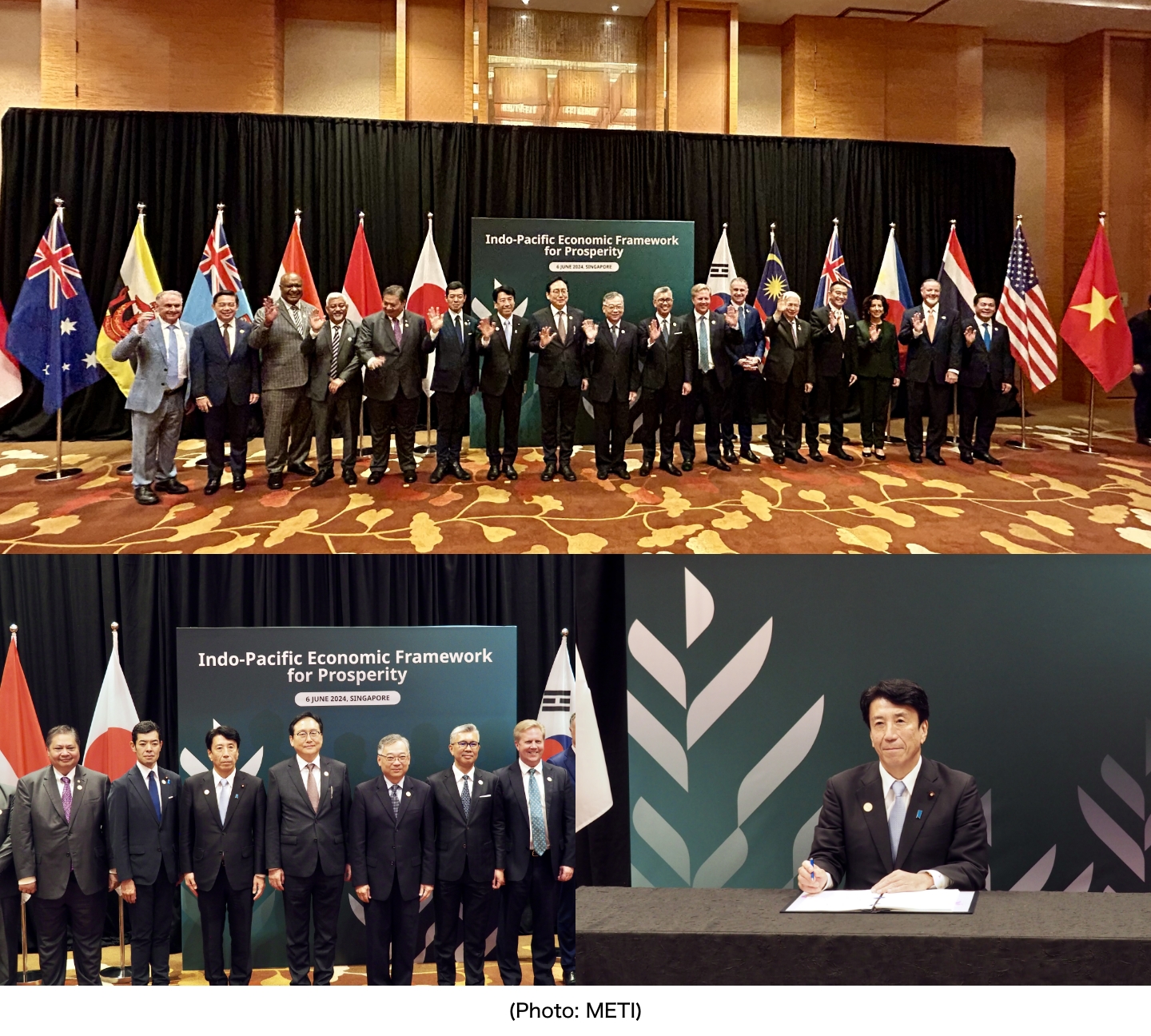
*14 IPEF partner countries consist of the U.S., Japan, Australia, New Zealand, the Republic of Korea, ASEAN7 (Indonesia, Singapore, Thailand, the Philippines, Viet Nam, Malaysia, and Brunei Darussalam), India, and Fiji.
■ IPEF Clean Economy Investor Forum
The first IPEF Clean Economy Investor Forum gathered over 300 attendees, including government officials, clean economy representatives, and investors. During the event, the winners of the Indo-Pacific Climate Tech 100 were announced, with ten startups from Japan recognized: Tsubame BHB Co., Ltd., Kyoto Fusioneering Ltd., Helical Fusion Co., Ltd., AC Biode, Asuene Inc., WOTA, EF Polymer K.K., SkyDrive, Terra Motors Corporation, and AI SILK Corporation.
Minister Saito revealed plans for Japan to establish the IPEF Window within the Japan Hydrogen Fund to enhance project design in the IPEF region. He highlighted Japan's progress in hydrogen and clean electricity initiatives. Additionally, Hitachi Zosen and Phil. Ecology Systems will launch a waste-to-energy facility project in Manila, the Philippines, while the Japan Bank for International Cooperation (JBIC), the U.S. International Development Finance Corporation, Export Finance Australia, and the Department of Foreign Affairs and Trade of Australia, support Vietnam's goal of achieving its goal of virtually zero greenhouse gas emissions by 2050 as an effort under the Vietnam Climate Change Framework Loan.
Lastly, Sembcorp, Sojitz Corporation, and Kyushu Electric Power Co. Inc. signed a term sheet on the off-take of green ammonia based on the previous memorandum of understanding by a consortium that has examined the manufacturing of green ammonia in India for exports to Japan.
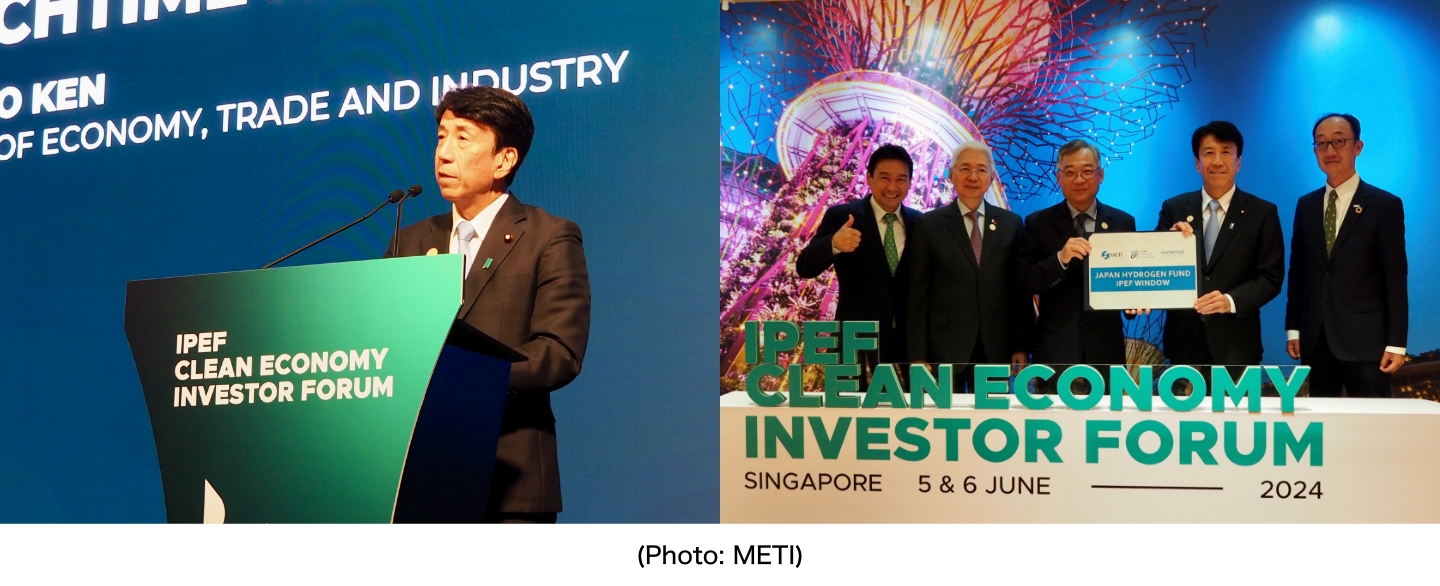
■ Japan-Singapore Co-Creation Platform
A kick-off seminar for the Japan-Singapore Co-Creation Platform was held, following an agreement from the second Japan-Singapore Economic Dialogue. Attended by Minister Saito and Singapore Minister for Manpower and Second Minister for Trade and Industry H.E. Dr. Tan See Leng, the event gathered around 200 participants from government, companies, and investors from Japan and Singapore. Discussions focused on sharing information about open innovation and fostering collaboration between the two countries.
Minister Saito emphasized the importance of leveraging each country’s strengths to drive innovation and outlined the platform's role in supporting global startups through partnerships with universities and research institutions. A joint statement was issued between the University of Tokyo, UTokyo IPC, and Vertex Holdings to promote startup investment and strengthen ecosystems in both countries. This is a collaboration that will advance as a main initiative under the Japan-Singapore Co-Creation Platform. Additionally, representatives of Japanese startups, accompanied with Minister Saito, presented pitches and engaged in networking with investors during the seminar.
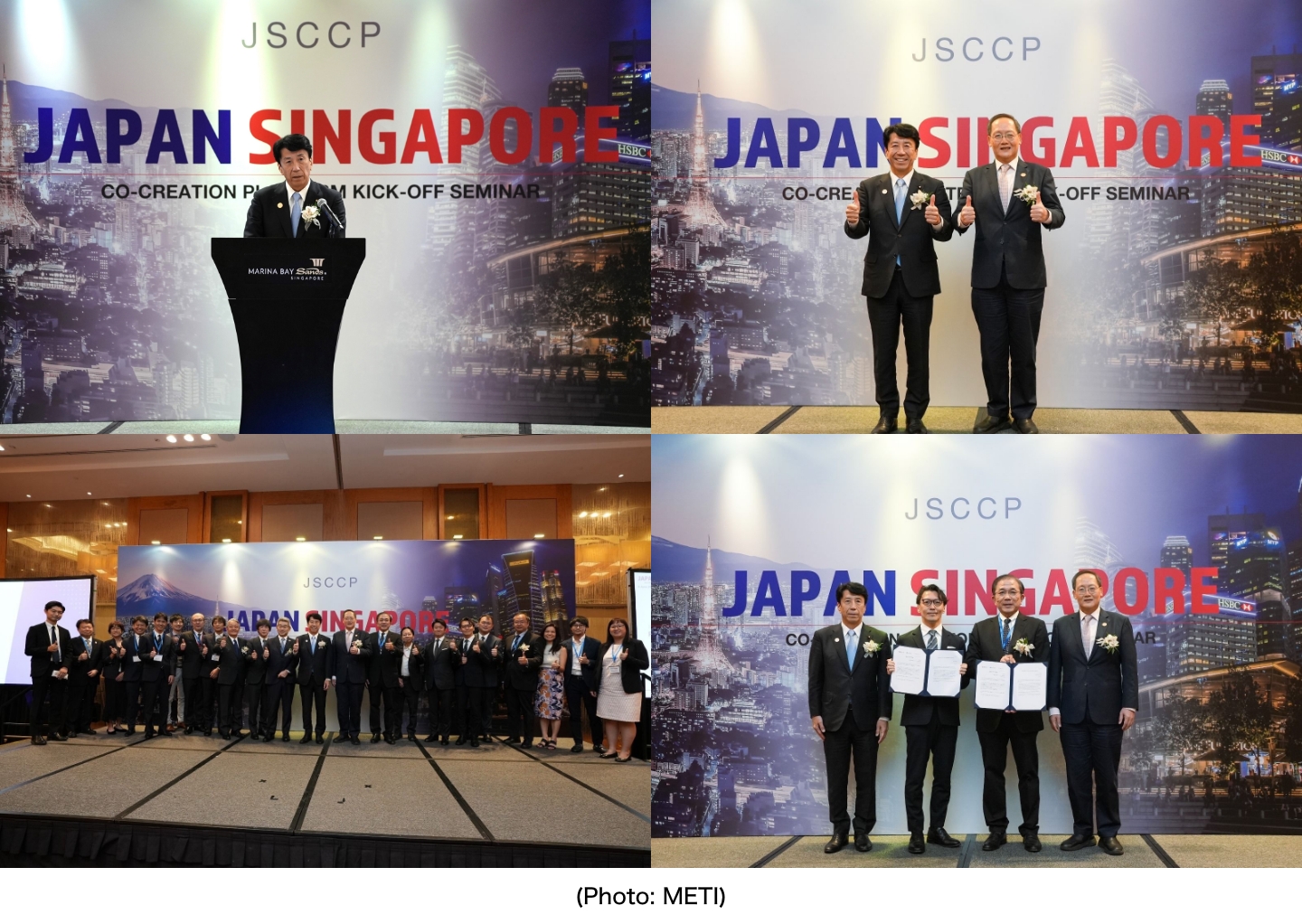
- Minister Saito Visits Singapore (English) (LINK)
Editorial Note



